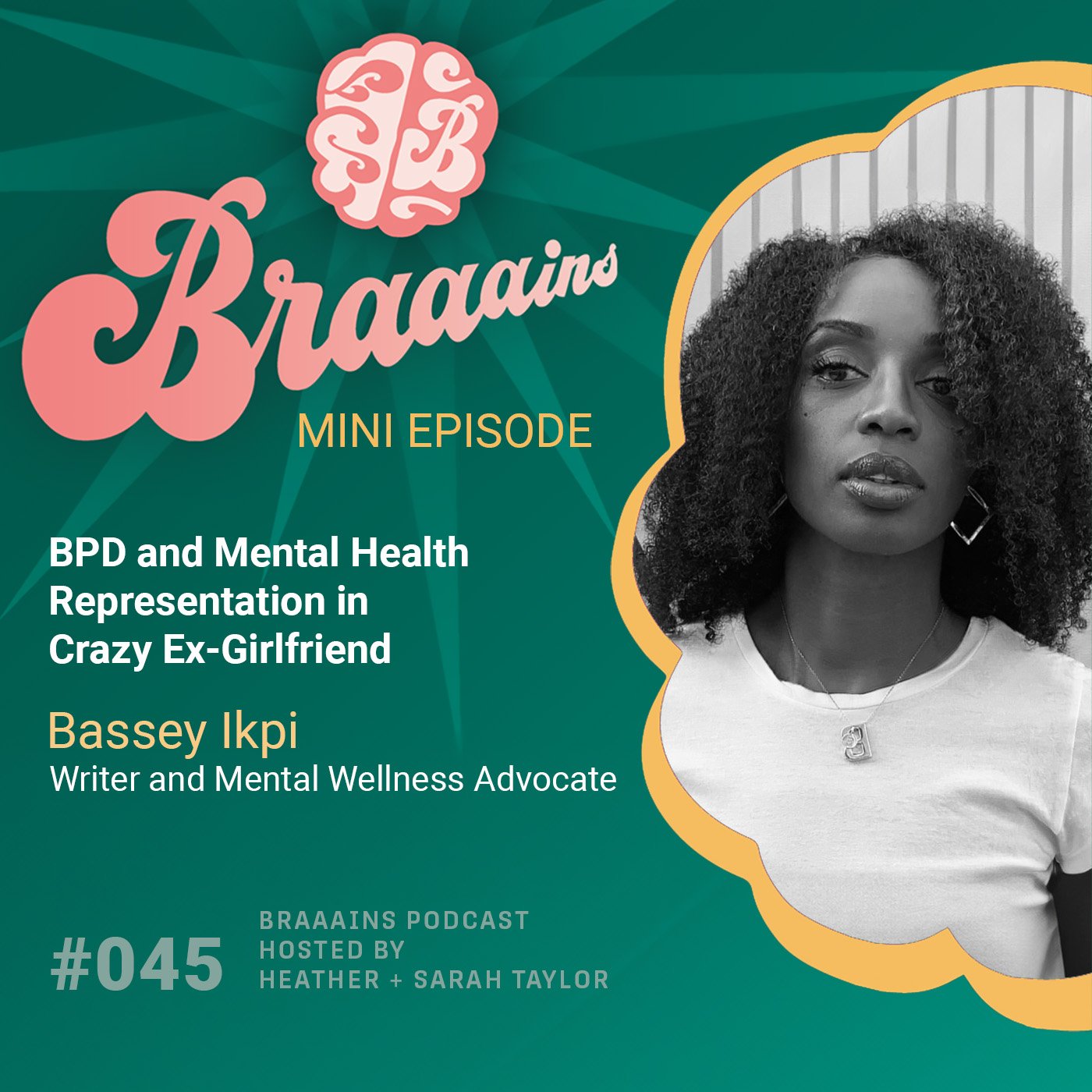Ep 045: BPD and Mental Health Representation in My Crazy Ex-Girlfriend
For today's mini-episode, we're chatting with New York Times best-selling author Bassey Ikpi about the depiction of mental illness (specifically Borderline Personality Disorder or BPD) in The CW's musical comedy-drama series My Crazy Ex-Girlfriend (2015–2019) by Rachel Bloom and Aline Brosh McKenna.
Listen on Spotify | Amazon | iHeart | Any player
Bassey is a Nigerian-American, ex-poet, current writer, constant mental health advocate, underachieving overachiever, and memoir procrastinator. Her book “I’m Telling the Truth But I’m Lying” is available in both print and audio.
LISTEN TO OUR FULL INTERVIEW WITH BASSEY: https://braaainspodcast.com/episodes/bipolardisorder
Listen to Braaains on these platforms (or anywhere you listen to podcasts!)
Music: Deppisch
Mixing/ Mastering: Tony Bao
Support this show: Patreon.com/BraaainsPodcast
ABOUT OUR GUEST
Bassey Ikpi is a versatile creative force known as a writer, author, ex-poet, performer, speaker, burpee abolitionist, and mental wellness advocate. She first made her mark on the classic 90s show BET’s Teen Summit and gained recognition as a renowned poet on HBO’s Def Poetry Jam. Her global tour with the Tony Award-winning Broadway show came to a pause with a bipolar II diagnosis, leading her to pivot toward mental wellness advocacy in her writing.
Bassey now openly shares her journey living with a chronic mental illness, inspiring others to navigate life beyond diagnosis. Her story is vividly captured in the Instant New York Times Bestselling debut book, “I’m Telling The Truth, but I’m Lying” (Harper Perennial, 2019). Despite embracing roles like an underachieving overachiever and semi-pro procrastinator, Bassey is diligently working on various creative projects, including her upcoming second book, “Before I Let Go.”
TAKEAWAYS
Individual experiences of mental health disorders can vary greatly.
Creating the right environment and finding coping mechanisms are crucial for managing mental health.
Crazy Ex-Girlfriend is praised for its hyperreal and honest portrayal of mental health struggles. Depicting mental health issues in a realistic and relatable way can help viewers better understand and empathize with the experiences of others.
Breaking the stigma surrounding mental health and creating connections through shared experiences is crucial for fostering understanding and support.
Titles and perceptions can significantly impact the reception of mental health stories, highlighting the need for careful consideration in storytelling.
Realistic and nuanced representations of mental health conditions help viewers understand and empathize with the experiences of those who are affected.
It is important to avoid stigmatizing portrayals that oversimplify or sensationalize mental health issues.
Misrepresentations and stigmas surrounding mental health in media can perpetuate harmful stereotypes and prevent open conversations about mental health.
Individual experiences of mental health disorders can vary greatly.
Creating the right environment and finding coping mechanisms are crucial for managing mental health.
Breaking the stigma surrounding mental health and creating connections through shared experiences is crucial for fostering understanding and support.
Adapting mental health stories for different mediums can be challenging, as it requires careful consideration of the story's essence and impact.
REFERENCES
Find Bassey at @Basseyworld on all social media or her website, basseyikpi.com
BOOK: I'm Telling The Truth, But I'm Lying by Bassey Ikpi
TV SERIES: My Crazy Ex-Girlfriend
Other episodes you’ll enjoy:
You’re Not Alone: The Road to Diagnosis - Episode 037
Atlanta, Insecure, and Bipolar Disorder - Episode 044
You’re Not Alone: How Stigma Hurts Everyone - Episode 036
Listen to recent episodes on Apple Podcasts:





